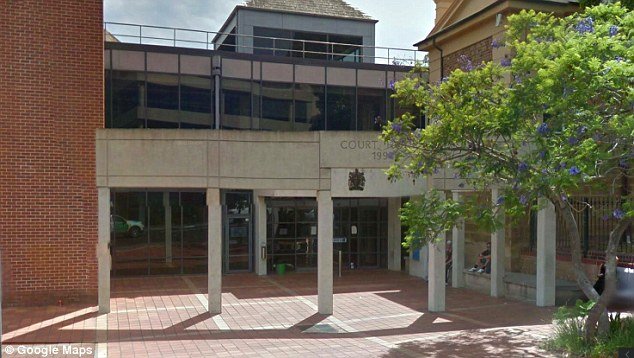- Highest Quality Legal Defence
- 0412 423 569
- 24 hr service
- (02) 9261 8640 緊急案件!Urgent Call
- Make Booking
Indecent Assault Lawyers Campbelltown

Indecent Assault Lawyers Campbelltown – Indecent Assault Charges – Campbelltown Local Court Representation
Indecent Assault Lawyers Campbelltown “Complex Matters Require Expert Defence”
Indecent assault is an extremely serious criminal charge. Indecent assault under Section 61L of the Crimes Act imposes a maximum penalty of 5 years in prison. Section 61M creates the offence of Aggravated indecent assault. Under Section 61P, any person who attempts to commit an offence including indecent assault is liable to the penalty provided for the commission of the offence. This means if a person attempts to commit indecent assault but does not, they are still liable to the same penalty as if they did commit the offence.
Indecent Assault Lawyer Campbelltown – Indecent Assault in Campbelltown
Between March 2017 and March 2018 there were 183 incidents of sexual offences (indecent assault, act of indecency and other sexual offences) recorded in the Campbelltown area. If you live in the Campbelltown area of have been charged with committing indecent assault in the Campbelltown area, your matter will likely begin in the Campbelltown Local Court.
If you have been charged with indecent assault it is essential to retain an expert criminal defence lawyer no matter the circumstances. Even if you know you are innocent and believe the evidence against you is weak, it is essential to be able to prove this in court and without expert criminal defence, this can be very difficult. If you are found guilty of committing indecent assault or a similar offence, your employment prospects will drastically reduce. Many employers will not or cannot employ a person with an indecent or sexual assault conviction. You will also not be able to travel to certain locations.
Indecent assault will occur where one person touches another person in a sexual way without the other person’s consent.
Indecent Assault Lawyers Campbelltown and Going to Court
When charged with indecent assault, you may either plead guilty or not guilty. If you decide to plead not guilty, you will face a committal. This is a hearing in the Local Court before the charge is heard in the District or Supreme Court. In the committal hearing a magistrate looks at the case and decides whether the prosecution maintains evidence which is strong enough for the matter to be committed for trial. If a magistrate finds there is a reasonable prospect that a jury, properly instructed, would convict an accused person of the offence, the case is committed for trial to the relevant trial court.
At trial, for an accused person to be found guilty of indecent assault, the prosecution must prove four elements beyond a reasonable doubt. They must prove that an assault took place. Secondly, they must prove that the assault was indecent. Thirdly, they must prove that the alleged victim did not consent to the relevant act. Finally, the prosecution must prove that the accused knew the alleged victim did not give consent, or the accused was reckless as to whether consent was given. Unless each of these are proved by the prosecution, an accused person cannot be found guilty of having committed indecent assault.
Indecent Assault and the Law
For indecent assault to be proved, the alleged act an accused person has committed must be a deliberate act and cannot be an accidental or involuntary act. The act or assault must also be unlawful. This means the act cannot be something which occurs in the course of everyday life. An example where a sexual assault will not have occurred is where a person accidentally touches another person on the buttocks whilst moving through a crowded train station.
If the complainant, or alleged victim of the act is under the age of 16 years, then the accused person or defendant cannot raise the defence of the alleged victim consenting to the act. In other words, a person under the age of 16 years is not able to give consent in the eyes of the law.
Indecent in this context means the assault must have a sexual connotation. This may be proved by showing that the act of touching by the accused is of a portion of the alleged victim’s body or by use of the defendant’s body which gives rise to that connotation. If the relevant alleged act does not show an immediate sexual connotation, the prosecution must show that the accused’s conduct was accompanied by an intention to obtain sexual gratification.
If the accused wishes to admit evidence which provides they were intoxicated at the time of the relevant act, this evidence cannot be taken into account if the intoxication was self-induced. In other words, if an accused person was intoxicated by their own conduct, this is not a defence to indecent assault. It may be raised as a defence however if the accused was intoxicated not of their own volition.
If you have been charged with indecent assault or a similar offence, it is essential to retain an expert criminal defence lawyer who can properly defend you and ensure the best possible outcome. George Sten & Co Indecent Assault Lawyers Campbelltown have over 50 years of experience in defending persons accused of a range of offences including indecent assault. Call us today on 02 9261 8640. Complex Matter Require Expert Defence!
